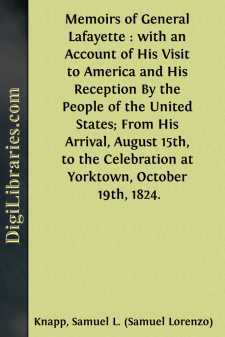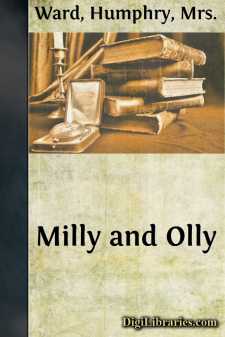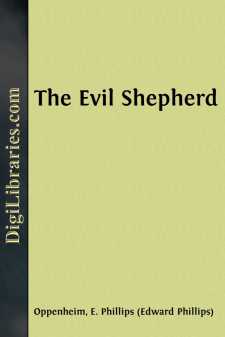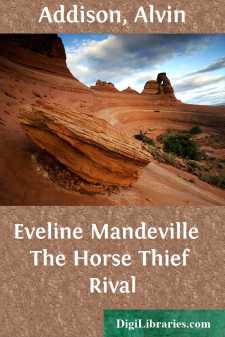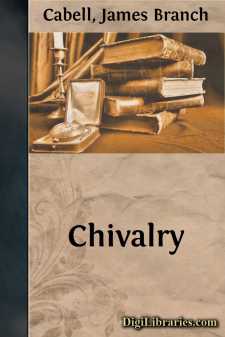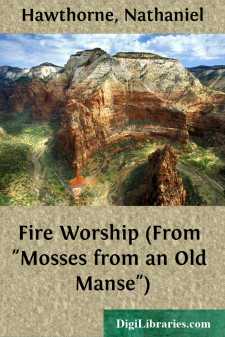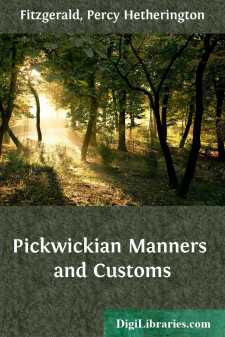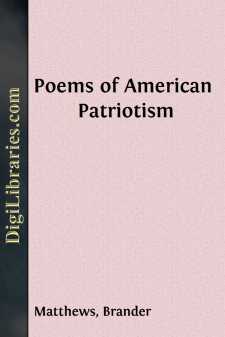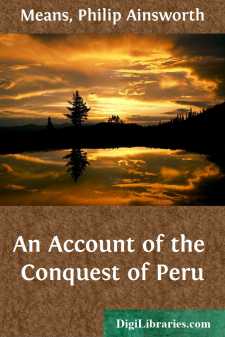Categories
- Antiques & Collectibles 13
- Architecture 36
- Art 48
- Bibles 22
- Biography & Autobiography 813
- Body, Mind & Spirit 142
- Business & Economics 28
- Children's Books 13
- Children's Fiction 10
- Computers 4
- Cooking 94
- Crafts & Hobbies 4
- Drama 346
- Education 46
- Family & Relationships 57
- Fiction 11828
- Games 19
- Gardening 17
- Health & Fitness 34
- History 1377
- House & Home 1
- Humor 147
- Juvenile Fiction 1873
- Juvenile Nonfiction 202
- Language Arts & Disciplines 88
- Law 16
- Literary Collections 686
- Literary Criticism 179
- Mathematics 13
- Medical 41
- Music 40
- Nature 179
- Non-Classifiable 1768
- Performing Arts 7
- Periodicals 1453
- Philosophy 64
- Photography 2
- Poetry 896
- Political Science 203
- Psychology 42
- Reference 154
- Religion 513
- Science 126
- Self-Help 84
- Social Science 81
- Sports & Recreation 34
- Study Aids 3
- Technology & Engineering 59
- Transportation 23
- Travel 463
- True Crime 29
Sort by:
MEMOIRS OF GENERAL LAFAYETTE * * * * * Among the many great men who have distinguished themselves in the present age, for their attachment and devotion to the cause of civil liberty, general LAFAYETTE is one of the most eminent. During the last fifty years, great changes have been made or attempted in human governments, highly favourable to political freedom and the rights of mankind. In some cases,...
more...
by:
Humphry Ward
CHAPTER I Making Plans “Milly, come down! come down directly! Mother wants you. Do make haste!” “I’m just coming, Olly. Don’t stamp so. Nurse is tying my sash.” But Master Olly went on stamping, and jumping up and down stairs, as his way was when he was very much excited, till Milly appeared. Presently down she came, a sober fair-haired little maiden, with blue eyes and a turn-up nose,...
more...
CHAPTER I Francis Ledsam, alert, well-satisfied with himself and the world, the echo of a little buzz of congratulations still in his ears, paused on the steps of the modern Temple of Justice to light a cigarette before calling for a taxi to take him to his club. Visions of a whisky and soda—his throat was a little parched—and a rubber of easy-going bridge at his favourite table, were already...
more...
by:
Alvin Addison
CHAPTER I. "Why do you persist in refusing to receive the addresses of Willard Duffel, when you know my preference for him?" "Because I do not like him." "'Do not like him,' forsooth! And pray, are you going to reject the best offer in the county because of a simple whim? the mere fancy of a vain-headed, foolish and inexperienced girl? I did not before suppose that a...
more...
I THE STORY OF THE SESTINA “Armatz de fust e de fer e d’acier, Mos ostal seran bosc, fregz, e semdier, E mas cansos sestinas e descortz, E mantenrai los frevols contra ’ls fortz.”THE FIRST NOVEL.—ALIANORA OF PROVENCE, COMING IN DISGUISE AND IN ADVERSITY TO A CERTAIN CLERK, IS BY HIM CONDUCTED ACROSS A HOSTILE COUNTRY; AND IN THAT TROUBLED JOURNEY ARE MADE MANIFEST TO EACH THE SNARES WHICH HAD...
more...
It is a great revolution in social and domestic life, and no less so in the life of a secluded student, this almost universal exchange of the open fireplace for the cheerless and ungenial stove. On such a morning as now lowers around our old gray parsonage, I miss the bright face of my ancient friend, who was wont to dance upon the hearth and play the part of more familiar sunshine. It is sad to turn...
more...
PICKWICKIAN MANNERS AND CUSTOMS. No English book has so materially increased the general gaiety of the country, or inspired the feeling of comedy to such a degree as, “The Pickwick Club.” It is now some “sixty years since” this book was published, and it is still heartily appreciated. What English novel or story is there which is made the subject of notes and commentaries on the most...
more...
by:
Brander Matthews
BOSTON SICUT PATRIBUS, SIT DEUS NOBIS RALPH WALDO EMERSON [sidenote: Dec. 16, 1773] This poem was read in Faneuil Hall, on the Centennial Anniversary of the "Boston Tea-Party," at which a band of men disguised as Indians had quietly emptied into the sea the taxed tea-chests of three British ships. The rocky nook with hill-tops three Looked eastward from the farms, And twice each...
more...
CHAPTER I Concerning the great quantity of silver and gold which was brought from Cuzco, and of the portion thereof which was sent to H. M. the emperor as the royal fifth: How the imprisoned Cacique Atabalipa declared himself free of his promise which he had made to the Spaniards to fill a house with gold for ransom: And of the treason which the said Atabalipa meditated against the Spaniards, for which...
more...
by:
H. W. Household
INTRODUCTION. It was in the reign of Elizabeth that England first became the enemy of Spain. Rivals as yet Spain had none, whether in Europe or beyond the seas. There was only one great mmilitary monarchy in Europe, only one great colonising power in the New World, and that was Spain. While England was still slowly recovering from the prostration consequent upon the Wars of the Roses, and nearly a...
more...


